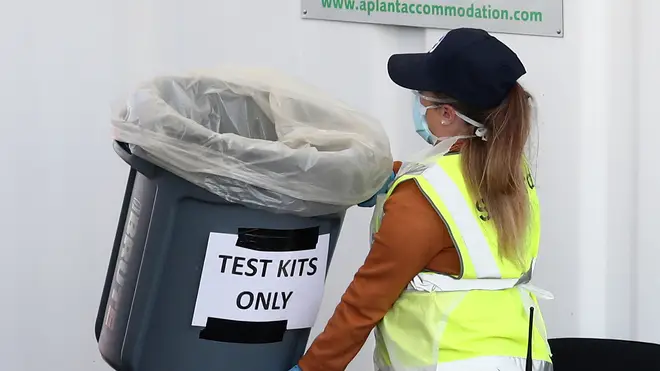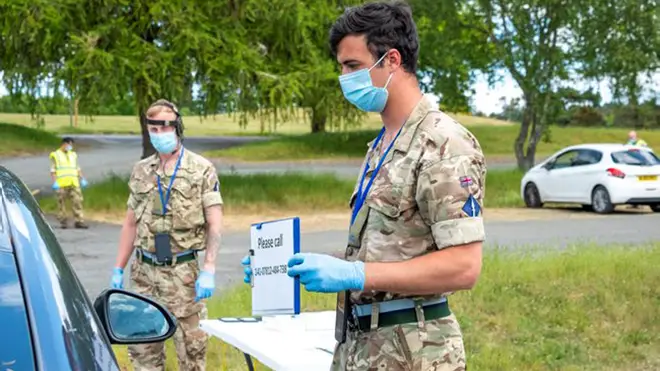
Henry Riley 4am - 7am
3 August 2020, 00:01

Tests which can detect Covid-19 and flu and reportedly give results in 90 minutes are set to be rolled out in the UK.
The technology will be deployed in hospitals, care homes and laboratories, and half a million will be available from next week.
The new LamPORE swab tests will help deal with the virus in winter, enabling clinicians and NHS Test and Trace to differentiate between Covid-19, which requires sufferers to undergo specific self-isolation, and other seasonal illnesses, the Department of Health said.
Millions more of the tests, supplied by Oxford Nanopore, are set to be rolled out later in the year.
Business and Industry Minister Nadhim Zahawi described 90-minute tests for coronavirus as a "game-changer".
He said: "This is a game-changer because the ability to do a test by just over an hour ... or 90 minutes will make a massive difference to our response to coronavirus whether at hospitals if somebody's coming in for surgery and people need to know very quickly if they've got coronavirus.
"You need to be able to test very rapidly and get those results that are accurate rapidly."
Asked if the tests will be used in care home settings, Mr Zahawi said 50,000 tests are being delivered to care homes daily, adding: "This will make a further difference because being able to administer these tests without any clinical training is another game-changer."
The Minister told LBC that the tests could be rolled out easier in a non-medical setting because the machines do not require users to be clinically trained.

WHO Director-General encourages countries to "Test, Test, Test" to deal with Covid-19
Meanwhile, thousands of DNA test machines, which have already been used in eight London hospitals and can analyse nose swabs, will be rolled out across NHS hospitals from September.
Some 5,000 machines, supplied by DnaNudge, will provide 5.8 million tests in the coming months, the department said.
Health Secretary Matt Hancock said: "Millions of new rapid coronavirus tests will provide on-the-spot results in under 90 minutes, helping us to break chains of transmission quickly.

"The fact these tests can detect flu as well as Covid-19 will be hugely beneficial as we head into winter, so patients can follow the right advice to protect themselves and others.
"I am hugely grateful for the excellent work done by DnaNudge and Oxford Nanopore to push forward these life-saving innovations in coronavirus testing."
Read more: Major incident declared in Greater Manchester over rising coronavirus cases
Read more: Protesters march where NHS worker was seriously injured in hit-and-run
Read more: Tory poll lead dips despite approval of reintroduction of Spain quarantine measures
Professor Chris Toumazou, co-founder of DnaNudge said: "The DnaNudge team worked with incredible speed and skill during the peak of the pandemic to deliver this highly accurate, rapid Covid-19 test, which requires absolutely no laboratory or pipettes and can be deployed anywhere with a direct sample-to-result in around just over an hour."
Gordon Sanghera, CEO of Oxford Nanopore, said: "LamPORE has the potential to deliver a highly effective and, crucially, accessible global testing solution, not only for Covid-19 but for a range of other pathogens."

Dr David Strain on the difficulties of lockdown messaging
The new tests were announced after the department denied that it had abandoned its pledge to regularly test care home residents through the summer following a leaked memo from Professor Jane Cummings, the Government's adult social care testing director.
According to the Sunday Times, Prof Cummings wrote to local authority leaders to inform them that "previously advised timelines for rolling out regular testing in care homes" were being altered because of "unexpected delays".
Regular testing of residents and staff was meant to have started on July 6 but will now be pushed back until September 7 for older people and those with dementia, the PA news agency understands.
A department spokeswoman confirmed there were issues with "asymptomatic re-testing".